Items Space

What are some fast techniques for sorting and storing items ?
Sorting and storing items can be a time-consuming task, but there are several fast techniques that can help you organize your belongings efficiently. Here are some tips to get started: 1. Declutter First: Remove unnecessary items from your space. Donate or sell items that are still in good condition. Dispose of items that are broken or unusable. 2. Categorize Your Items: Categorize your items into groups based on their purpose, frequency of use, or any other criteria that make sense for your situation. This will help you determine where each item should be stored. 3. Use Containers and Labels: Invest in containers of various sizes to store your sorted items. Clear containers are great because they allow you to see what's inside without opening them. Label each container with its category or contents to make it easy to find what you need quickly. 4. Utilize Vertical Space: Shelves, hanging organizers, and wall-mounted racks can help maximize your storage capacity and keep things off the floor. 5. Maintain Organization: After sorting and storing your items, it's crucial to maintain their organization regularly. Set aside time each week or month to go through your belongings and ensure everything is in its proper place.

What are some clever travel packing hacks for saving space ?
Traveling can be an exciting adventure, but packing your belongings can sometimes feel like a daunting task. However, with some clever packing hacks, you can maximize the space in your suitcase or backpack and avoid overpacking. Here are some tips to help you save space while packing: - Roll Your Clothes: Instead of folding your clothes, roll them up tightly. This not only saves space but also helps prevent wrinkles. You can even roll multiple items together, such as a shirt and its corresponding undergarments, to keep them organized. - Use Compression Bags or Packing Cubes: Compression bags allow you to squeeze out all the air from your clothing, significantly reducing their volume. Packing cubes, on the other hand, help you organize your items and make the most of the available space by filling odd-shaped gaps within your luggage. - Fill Your Shoes: Shoes tend to take up a lot of room, but they can also serve as storage containers. Stuff small items like socks, chargers, or even jewelry inside your shoes to save space elsewhere. Just make sure the items are clean and won't damage the shoes. - Layer Your Clothes: When packing outfits, layer them on top of each other rather than placing them side by side. This way, you can see everything at once and ensure that you have enough combinations without having to pack extra pieces. - Utilize Every Inch of Space: Think about the pockets in your luggage, the space inside your hats, and even the hollow tubes of toiletry bottles. These areas can hold small items like headphones, adapters, or medications that would otherwise take up valuable real estate in your bag. - Wear Your Bulkiest Items: If you have bulky items like sweaters, jackets, or boots, consider wearing them during travel rather than packing them. This not only saves space but also keeps you warm if you're traveling to a cold destination. - Choose Versatile Clothing: Pack items that can be worn in multiple ways or dressed up and down. For example, a scarf can double as a beach cover-up, and a dress can transition from day to night with different accessories. - Limit Your Toiletries: Instead of bringing full-size bottles, transfer your toiletries into smaller travel containers. You can also opt for solid shampoo bars or soap instead of liquid products to save space. - Pack According to Your Itinerary: Plan your outfits ahead of time and only pack what you know you will wear. Consider the activities you have planned and the weather at your destination to avoid overpacking unnecessary items.

What are some creative ways to quickly declutter and organize a small space ?
To quickly declutter and organize a small space, start by identifying problem areas and setting clear goals. Sort and categorize belongings into "keep," "donate," "sell," or "trash" piles. Maximize storage through vertical space, multifunctional furniture, and transparent containers. Get creative with storage solutions by repurposing household items and DIY projects. Finally, maintain order with regular cleaning and the "one in, one out" rule to prevent clutter buildup.

What are the best ways to quickly clean and organize a messy space ?
When faced with a cluttered or messy space, it can feel overwhelming to know where to start. Here are some effective strategies to quickly clean and organize any area: 1. **Sort and Categorize**: Divide the space into sections or zones to tackle one at a time and gather similar items together for easier decision-making. 2. **Declutter Ruthlessly**: Be ruthless and discard or donate things that are no longer needed or haven't been used in a while, and separate recyclables and trash from items that may still be useful to someone else. 3. **Create a Cleaning Plan**: Jot down specific tasks for each zone to ensure nothing is overlooked and assign priorities based on what needs cleaning the most or what will have the biggest impact. 4. **Use the Right Tools**: Have all necessary cleaning supplies on hand like dusters, wipes, vacuum, and cleaning solutions, and utilize storage boxes, shelves, hanging organizers, and labels to keep things tidy. 5. **Work in Sections**: Focus on one area at a time to prevent feeling overwhelmed and help you see progress, and clean before organizing by dusting, vacuuming, and wiping down surfaces before putting things away. 6. **Maintain Order**: Set aside time regularly to maintain order and prevent future buildups, and encourage everyone using the space to put things back where they belong after use. 7. **Employ Time Management Techniques**: Give yourself a limited amount of time to complete each task to stay focused and efficient, and take short breaks to avoid burnout and maintain high energy levels. 8. **Involve Others**: Get family members or coworkers involved in the cleaning process if possible, as working together can make the job more enjoyable and less time-consuming. 9. **Keep It Simple**: Don’t overcomplicate storage; use what works and is easy to maintain, and prioritize practicality in organization over how it looks. Functionality should dictate placement.
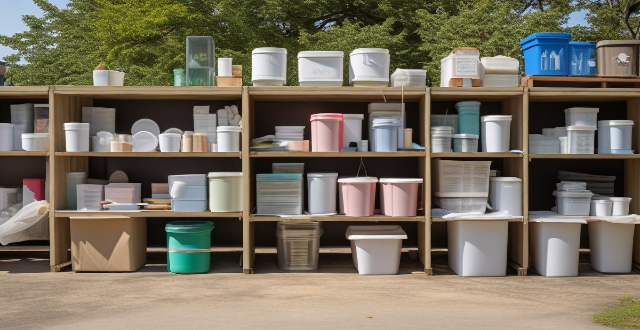
What are the best practices for recycling household items ?
Recycling household items is crucial for reducing waste and conserving resources. Best practices include knowing local guidelines, cleaning items, flattening cardboard, separating recyclables, using bins properly, donating usable items, composting organic waste, and buying products with recyclable packaging. By following these steps, individuals can contribute to a more sustainable future and reduce their environmental impact.

What is the ideal way to pack fragile items for a journey ?
Packing fragile items for a journey can be a daunting task, but with the right approach, you can ensure that your precious belongings arrive at their destination safely. Here are some tips on how to pack fragile items ideally: 1. Use proper packing materials such as bubble wrap, packing paper, foam peanuts, and anti-static polyethylene bags. 2. Wrap each item individually to reduce the risk of damage during transit. 3. Use boxes of appropriate size to accommodate the item without too much extra space or pressure. 4. Label boxes appropriately with clear, legible writing to indicate that the box contains fragile items and which direction is up.
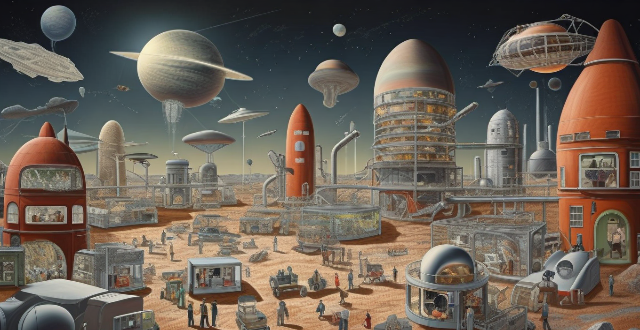
How does space exploration benefit humanity ?
The benefits of space exploration for humanity include technological advancements, economic growth through job creation and commercial opportunities, global collaboration fostering peace, scientific discoveries about our universe, inspiration and education for future generations, preserving Earth by monitoring environmental changes, and national security measures. These benefits touch every aspect of human life, making space exploration a significant investment in our collective future.

How do I manage storage space on my Apple device ?
Managing Storage Space on Your Apple Device Checking Storage Space: - Open Settings and tap General. - Select iPhone Storage (or iPad/iPod Storage). - View a bar graph showing used and available storage, and a list of apps sorted by storage usage. Tips for Managing Storage Space: 1. Delete Unused Apps: Remove apps from the Home Screen or through Settings to free up space. 2. Offload Unused Apps: Enable Offload Unused Apps in Settings to remove apps while keeping their data. 3. Optimize Photo Storage: Use Optimized Storage in Photos settings and manually delete unwanted photos/videos. 4. Clear App Cache and Data: Offload apps to keep their data and reinstall them to remove it. 5. Use Cloud Services: Back up to iCloud and store files in iCloud Drive to save local storage. 6. Manage Messages: Auto-delete old messages and review attachments before deleting conversations. 7. Manage Media and Downloads: Stream content instead of downloading and delete downloaded episodes and songs. 8. Other Tips: Regularly check storage, disable auto downloads, and consider resetting your device if needed.

What are the essential items to pack for a backpacking trip ?
Essential Items to Pack for a Backpacking Trip: Shelter and Sleeping Gear, Clothing, Food and Water, Cooking and Eating Utensils, First Aid Kit and Safety Items, Navigation Tools, and Miscellaneous Items.
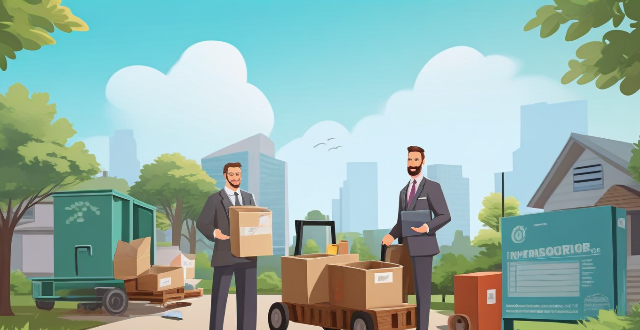
What are the benefits of recycling and reusing second-hand items ?
Recycling and reusing second-hand items offer significant benefits for the environment, economy, and society. By reducing landfill waste, conserving natural resources, and lowering emissions, these practices help to mitigate environmental challenges. Economically, they provide cost savings for individuals and create job opportunities. Socially, they promote sustainability and community engagement. Overall, recycling and reusing second-hand items are essential steps towards a more sustainable future.

What are the current advancements in space exploration ?
The text discusses current advancements in space exploration, including commercial space travel, Mars and lunar exploration, deep space probes, and telescopes and observatories. These advancements showcase humanity's relentless pursuit of knowledge and understanding of the universe around us.

What are some common pitfalls to avoid when buying second-hand items ?
When buying second-hand items, it's important to inspect them thoroughly for any signs of damage or wear and tear. You should also verify the authenticity of luxury items and research their value to ensure you're getting a fair price. Be wary of scams and consider the return policy before making a purchase. By following these tips, you can avoid common pitfalls and find great deals on high-quality products.

How can I save money while shopping for luxury items ?
Shopping for luxury items doesn't have to be expensive if you follow these tips. Set a budget, research prices, wait for sales, choose timeless designs, invest in quality, consider pre-owned items, negotiate prices, and avoid impulse buying to save money while enjoying the finer things in life.

How will commercial space tourism change the way we view Earth and space ?
The advent of commercial space tourism is set to revolutionize our understanding of both Earth and space by making space travel more accessible. It allows us to view our planet from a different perspective, fostering a greater sense of global awareness and interconnectedness, as well as an appreciation for the fragility and beauty of our planet. Additionally, it provides the opportunity for people to experience space firsthand, leading to a deeper understanding of the challenges and opportunities presented by space exploration, renewed interest in science and technology, and increased demand for education in STEM fields. Overall, commercial space tourism has the potential to change the way we view Earth and space by providing unique perspectives and experiences that can help us better appreciate our planet and expand our understanding of the universe beyond.

How do scientists predict the impact of regular space travel on the environment ?
Scientists predict the environmental impact of regular space travel by considering various factors such as greenhouse gas emissions, waste generation, and resource consumption. They use computer models, simulations, and experimental data to estimate potential effects on Earth's ecosystems. Greenhouse Gas Emissions: Launching rockets requires a significant amount of fuel, leading to high CO2 emissions. Powering spacecraft and supporting infrastructure also contributes to increased energy consumption and CO2 emissions. Waste Generation: Astronauts generate solid waste during their missions, which needs proper disposal to avoid pollution. Spent rocket stages can cause debris in orbit or harm wildlife if they fall back to Earth uncontrolled. Resource Consumption: Regular space travel requires a substantial amount of resources, including water, food, and materials for building spacecraft and infrastructure. This leads to increased demand and potential stress on freshwater sources, soil degradation, loss of biodiversity, and environmental damage due to material extraction. Mitigating Strategies: To address the environmental concerns associated with regular space travel, scientists propose strategies like developing efficient propulsion systems, using renewable energy sources, implementing waste reduction techniques, and promoting sustainable resource management practices.

How does space exploration inspire future generations ?
Space exploration has been a source of inspiration for future generations in various ways, including igniting curiosity and wonder, advancing scientific knowledge, promoting international collaboration, encouraging careers in STEM, inspiring creativity and art, and nurturing resilience and perseverance. As we look toward the future, space exploration will continue to capture the imagination of young people around the world and spur them on to become the next generation of explorers, scientists, and engineers.
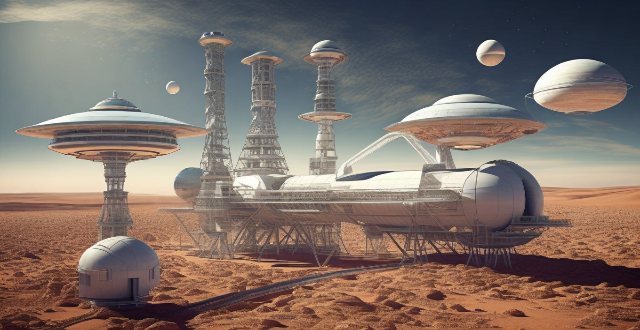
What are the ethical considerations of space exploration and colonization ?
The article discusses the ethical considerations of space exploration and colonization, emphasizing the importance of balancing potential benefits with risks, considering environmental impact, addressing interplanetary diplomacy, and developing a comprehensive legal and regulatory framework. It highlights the need for a strong ethical framework to ensure responsible and sustainable pursuit of space endeavors.
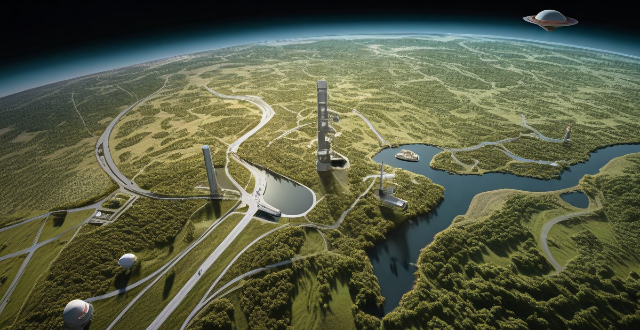
What are the current trends in commercial space exploration ?
Commercial space exploration is a rapidly evolving field, drivenCommercial space exploration is a rapidly evolving field, driven, economic incentives, and small satellite constellations for internet and Earth observation, space tourism and commercial space stations, Moon and Mars exploration, in-space manufacturing and resource utilization, and international cooperation and legal frameworks. These trends demonstrate that commercial space exploration is not only expanding our knowledge of the universe but also creating new industries and opportunities for economic growth.

How do I pack efficiently for a weekend getaway ?
Efficient packing for a weekend getaway can be achieved by creating a list, choosing versatile clothing, rolling clothes instead of folding them, using packing cubes or compression sacks, minimizing toiletries and electronics, packing lightweight shoes, utilizing all available space, and considering carry-on luggage only. These strategies help maximize suitcase space while ensuring travelers have everything they need for a fun and relaxing trip.

What are the essential items to include in a disaster preparedness kit ?
A disaster preparedness kit should include essential items such as water, non-perishable food, a first aid kit, warm clothing and bedding, light sources, communication devices, tools, cash, important documents, and personal items. It is crucial to regularly check and replace expired items to ensure the kit is ready for any emergency situation.
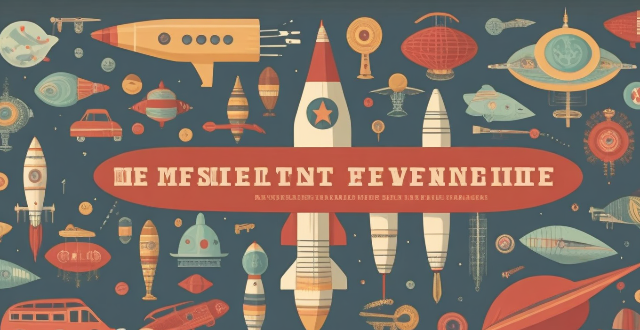
How has private investment impacted the development of space technology ?
Private investment has significantly impacted space technology development by increasing research and development funding, reducing costs, improving efficiency, and driving innovation. Private companies like SpaceX and Blue Origin have made advancements in reusable rockets, satellite communications, and lunar exploration. These investments have also enabled new business models and increased accessibility to space for smaller organizations.

What are some tips for packing light for a backpacking trip ?
This text offers tips for packing light and efficiently for a backpacking trip. It suggests planning outfits, packing multipurpose items, choosing the right bag, rolling clothes, wearing bulkiest items, using packing cubes or compression sacks, limiting shoes, digitalizing reading material, and laying out everything before packing to ensure a more enjoyable and stress-free adventure.
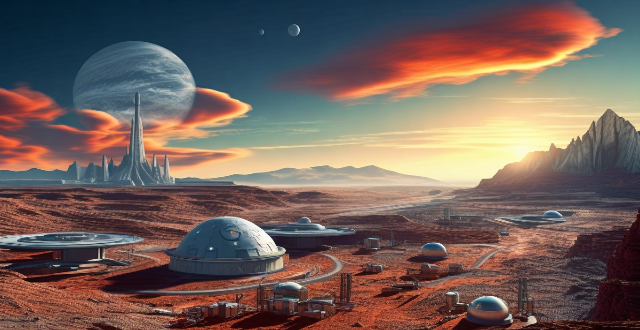
How does space exploration impact global cooperation and diplomacy ?
Space exploration has been a significant driver of global cooperation and diplomacy since the dawn of the space age. The pursuit of understanding our universe and the quest to explore beyond Earth's boundaries have fostered international collaboration, technological advancements, and diplomatic engagements that transcend traditional geopolitical tensions. In this discussion, we will delve into the various ways space exploration influences global cooperation and diplomacy.
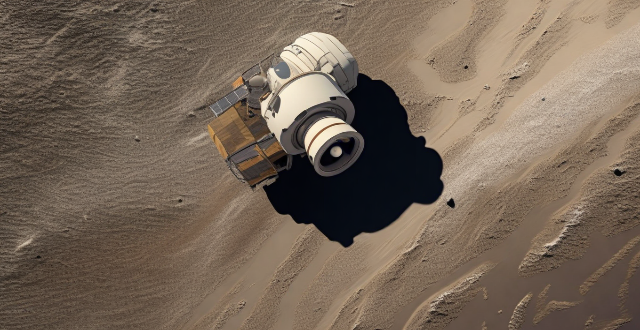
How much does it cost to travel to space ?
The cost of traveling to space varies depending on the type of mission, duration of stay, and provider. Suborbital flights are the most affordable option, while lunar and Mars missions are significantly more expensive. Factors such as training, technology, and risk contribute to the high costs. As technology advances and more companies enter the industry, the cost may decrease, but space travel is unlikely to become affordable for the average person in the near future.
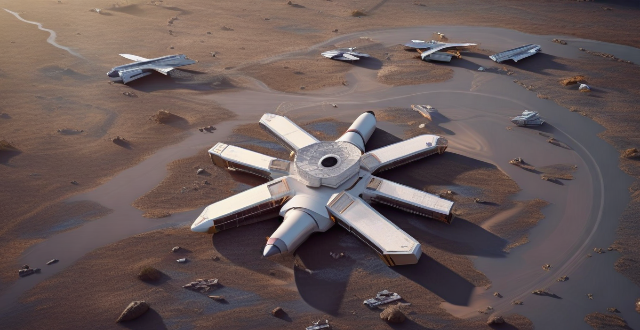
How sustainable is the commercial space industry, and what environmental concerns should be addressed ?
The commercial space industry is facing environmental concerns such as carbon emissions, space debris, natural resource depletion, and radioactive waste disposal. To address these issues, companies can adopt sustainable practices, invest in new technologies, and explore alternative materials and energy sources. By doing so, they can reduce their impact on the environment and contribute to a more sustainable future.
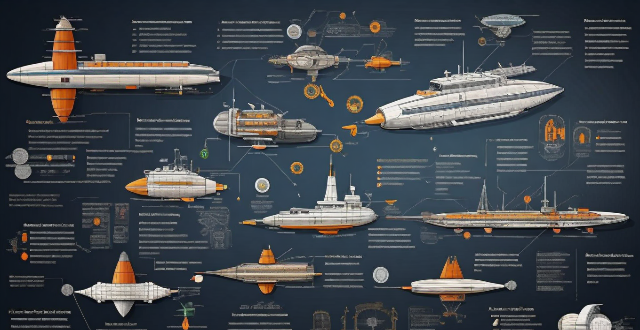
What are the current advancements in space travel technology ?
Over the years, scientists and engineers have made significant advancements in various aspects of space travel. Current advancements include propulsion systems like ion thrusters, nuclear propulsion, and solar sailing; life support systems that recycle water and air and closed-loop life support systems; and reusable spacecraft such as the Space Shuttle program, SpaceX Dragon and Falcon 9, and Blue Origin New Shepard. These advancements show great promise for the future of human exploration beyond our planet.
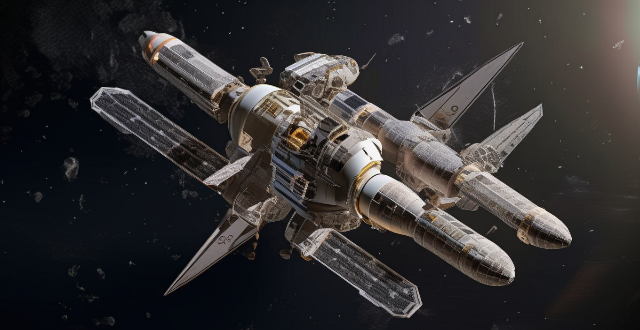
Who are the major companies involved in commercial space travel ?
Commercial space travel has become a reality with the advancements in technology, and several companies are making significant contributions to the industry. Major companies involved include SpaceX, Blue Origin, Virgin Galactic, Boeing, and Sierra Nevada Corporation (SNC). These companies are developing reusable launch vehicles and reliable rocket engines, as well as spacecraft designed to carry cargo and humans to and from low Earth orbit destinations such as the International Space Station. Their unique technologies and innovations aim to make space travel more accessible and affordable for both scientific research and tourism purposes.
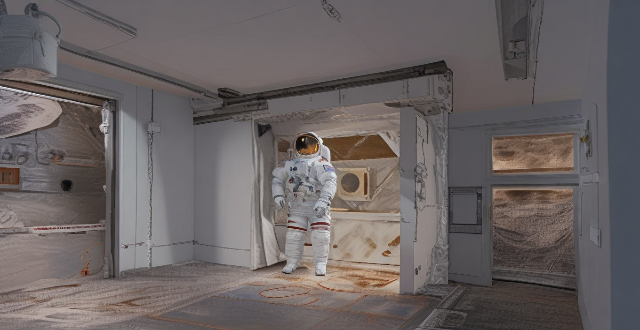
What are the challenges faced by astronauts during long-duration space missions ?
Long-duration space missions pose physical, psychologicalLong-duration space missions pose physical, psychological astronauts, including including muscle atrophy, bone loss, radiation exposure, immune system changes, isolation, communication delays, sleep disturbances, resource management, equipment maintenance, and task scheduling. Addressing these challenges is crucial for the success of future deep space exploration efforts.

What is the future of space tourism and its implications on Earth's resources ?
The development of space tourism by private companies like SpaceX, Blue Origin, and Virgin Galactic may make it more accessible to the public in the future. However, it raises concerns about its environmental impact, economic considerations, ethical concerns, and long-term sustainability. It is crucial to consider these implications to ensure responsible use of Earth's resources while exploring space tourism.